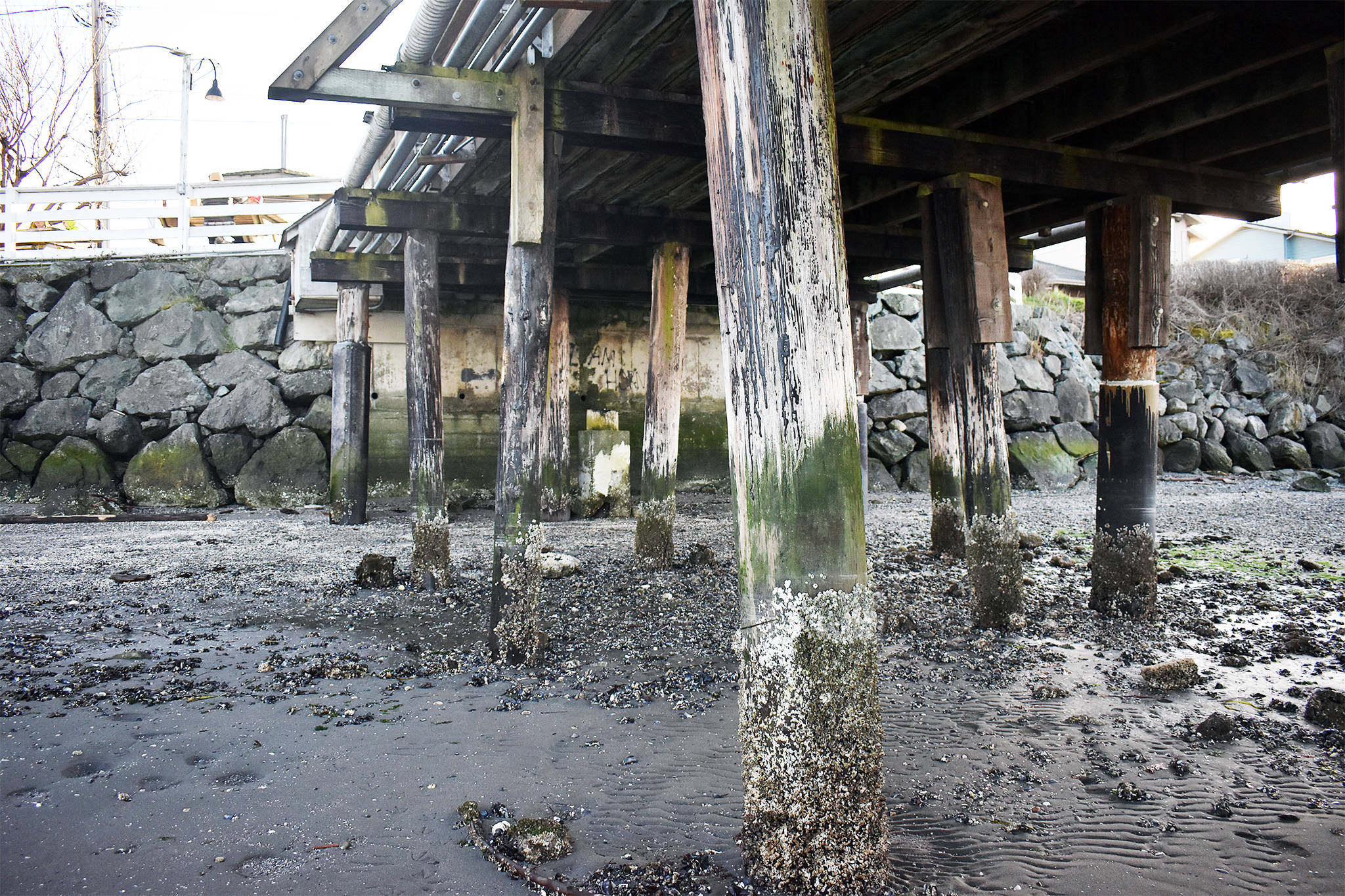The year 2020 was a challenging one for the Port of Coupeville.
It had to deal with a boat abandoned by a man on the run from the law and an important federal permit waylaid by COVID-19 and red tape.
Despite the hurdles, the port was able to make headway on restoration efforts and largely weathered the financial effects of the pandemic.
However, port officials are considering asking voters for a levy to tackle large capital maintenance projects at its historic properties, including the iconic Greenbank Farm and Coupeville Wharf.
Executive Director Chris Michalopoulos outlined the “state of the port” in a presentation to port commissioners last week. He said the district is under budget in expenses and revenues for the year.
Actual expenses were just 65.5 percent of what was budgeted for the year, he said. Revenues were about 10 percent less than what the port hoped to bring in, but still outweighed expenses.
A total of 2,365 vessels came in for moorage last year, just 52 fewer than the year prior despite COVID-19 stay-at-home orders.
Michalopoulos said the port’s investment account balance grew to $670,000 by the end of 2020.
The fund increased by $100,000 from the year prior and has almost doubled since 2017.
The port received more than $1.4 million in grants from 2018-20.
The largest award came from Island County government in 2019 for $870,804 and is earmarked for the first phase of the pile-and-cap project at the Coupeville Wharf.
A few key projects are finished, including a face lift for the wharf entryway with new pressed gravel, and the port’s roofing project on 24 Front St., Michalopoulos said.
Work to remove the derelict vessel, the Platypus, began last year. It was finally floated away in January.
The pile-and-cap project to replace the decaying foundation under the wharf remains tied up as the port waits for approval from the National Marine Fisheries Service.
The project was scheduled to be done by the end of 2020, but the pandemic got in the way and the permit was held up by the government body.
Michalopoulos said that he is hopeful that work will begin in the latter half of this year. The physical work will take about three weeks.
“As of right now, we’re still in the waiting game.”
After that, roof replacement and seismic stabilization work can begin.
Last April, the port received $303,000 from the state Department of Archaeology and Historic Preservation to retrofit the century-old port building to current standards and repair the roof. That phase of the wharf restoration project is planned for 2022.
The entire fire suppression system for the wharf will be replaced in mid- to late-April for $167,000.
A 70-foot pipe burst last August and was replaced for $10,000, Michalopoulos said.
Also, the wharf’s interior is getting a fresh coat of paint, some minor bathroom upgrades and a historical photo display.
The Greenbank Farm still needs some major maintenance projects, including a new roof, siding and a septic system capable of commercial use to accommodate some of the businesses at home on the farm.
However, said Michalopoulos, the wharf is the priority given the scope of necessary repairs.
Port commissioners are considering an industrial development district levy, which is a port-specific tool to raise funds for large projects.
The port currently receives $416,170.88 in tax revenue, in addition to lease revenues, despite the total taxable value of properties in the district being over $2.7 billion.
A consultant is scheduled to present to commissioners at their April 14 meeting options for pursuing the option.
Correction: An earlier version of this story stated that the Port of Coupeville would ask voters for an industrial development district levy on election ballots. It will not; Executive Director Chris Michalopoulos clarified the process, explaining that an IDD “is a one-time opportunity for the Port to seek tax levy revenues for capital projects (only) without needing a vote on the ballot. It is limited by how much and time.” He said residents will be invited to a public hearing to learn more about the effort at a later date.



